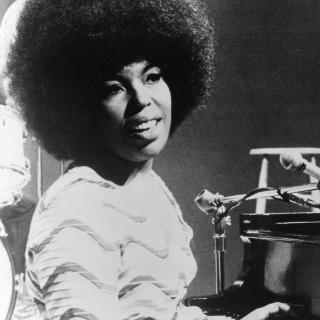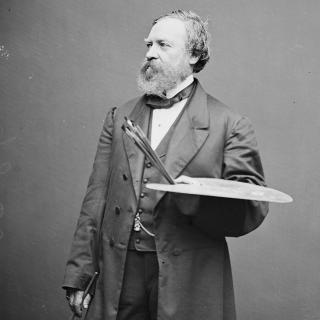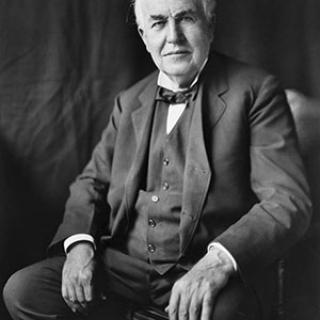Dr. Loguen-Fraser's Solemn Vow
At 22 years old, a woman who went by “Tinnie” had an experience at a Washington train station that would forever change her destiny. It was the spring of 1873, and Sarah Marinda Loguen was returning to her family home in Syracuse, New York after visiting friends and family in the nation’s capital. When she heard a child’s scream, she witnessed a horrible sight: a young boy was gravely injured by a wagon which had run over his leg.[1]
While a crowd gathered, Loguen was the only person to look for help. She frantically searched for a doctor, but to no avail. The child was carried away, presumably dead. That day she made a solemn vow: “I will never, never see a human being in need of aid again and not be able to help.”[2] This was Sarah Loguen’s first step on the road to becoming a doctor.
Sarah Marinda Loguen-Fraser lived an extraordinary life, as a healer, mother and advocate for Black health and wellbeing. Indeed, she was the fourth Black woman in the United States to become a licensed physician.[3] While she lived all around the world, including New York, the Dominican Republic and France, some of the most important landmarks of her life happened in Washington, D.C.
But, before delving into her life and times in the capital, let’s take a journey to some of the other cities that were important to her life. Sarah Marinda Loguen was born in Syracuse, New York on Jan 29, 1850. Her father was Reverend Jermain Wesley Loguen, who escaped slavery in his childhood to become a prominent abolitionist operating a safe house in the Underground Railroad, and becoming a bishop in the African Methodist Episcopal Zion Church.[4]
Before becoming trained in the field of Western medicine, she grew acquainted with Iroquois healing practices as a child: a group of local Haudenosaunee women taught her family how to treat the ailments of fugitives escaping slavery.[5]
After the incident where she was powerless to aid the injured child, she sought mentorship from her family physician, Michael Benedict, who had been surgeon in the Civil War.[6] With his assistance, she learned the basics of biology and chemistry needed to apply to medical school. On Oct 3, 1873, she was accepted into the Syracuse University College of Medicine. Three years later, she graduated, becoming the first woman to receive a Doctor of Medicine degree from the university.[7]
For the next four years, she completed medical internships at hospitals in Boston and Philadelphia.[8] In 1881, her journey took her to practice medicine in the same place where she first vowed to become a doctor: the U.S. capital. But, she wouldn’t stay for long. She moved in to her sister Amelia’s household. Amelia was married to Frederick Douglass’ son, and as a result Sarah Loguen had a close relationship with the esteemed abolitionist.[9] According to lore, Douglass brought a custom signboard for Loguen’s private practice on 13th St, NW, and nailed it up himself.[10]
Within a year, Douglass also introduced Loguen to the person she would marry, a man named Charles Fraser, a pharmacist of Afro-Caribbean and Danish descent, who owned a plantation in the Dominican Republic.[11] The two were married in 1882, and Sarah Loguen-Fraser moved from the District to Puerto Plata, a city on the northern coast of the Dominican Republic.
In a letter addressed on Oct 27, 1882, Douglass wrote a warmhearted farewell to his friend. He said:
Tell Mr. Fraser that while I would have been glad to have you here as long as I am in the land of the living, that I do not blame him a bit for taking you away.[12]
She spent the next decade in the Caribbean, raising her daughter, Gregoria “Doe” Fraser, and practicing as the first female doctor in the Dominican Republic, earning the nickname “Miss Doc.”[13] After her husband died in 1894, she gradually began planning to move back to the United States.
When she returned to Washington, D.C., she found that a lot had changed, making life more difficult for a person of her race and gender. In an entry in American National Biography, historian David Marc wrote: “Hoping to return to private practice in Washington, Loguen was shocked by the sharp deterioration in race relations that had taken place in the United States. Reconstruction-era civil rights laws had either been repealed or were actively ignored. The capital city, like much of the nation, had adopted segregationist policies throughout all spheres of life. She found herself unable to buy or rent suitable medical offices, and the schools she had in mind for Gregoria were ‘for Whites only.’”[14]
As a result, Loguen-Fraser sent her daughter to a boarding school in France and moved to Syracuse with the money that she received by selling her late husband’s plantation. In 1907, she returned to Washington, buying a house at 2019 13th St, NW, where she spent the rest of her life.[15] While she never opened another private practice, she put her medical skills to use working as resident physician at the Blue Plains Industrial School for Colored Boys, and volunteering at a women’s clinic through her membership to an African American professional service organization, the Order of Malachites.[16]
Her lifetime of achievement was honored in 1926, when she was invited as a guest of honor at the Howard University Alumni Dinner. That day, they celebrated the 50th anniversary of her graduation from medical school.[17] By 1920, the list of Black women licensed to practice medicine had grown from four to 65, according to the U.S. census.[18]
Sarah Marinda Loguen-Fraser died at the age of 83 on April 9, 1933. While the trajectory of her life took her to many interesting places, we’d like to take into account the thirty years she spent here in the capital, and proudly claim her as an inspiring local history-maker.
Footnotes
- ^ Eric V. D. Luft "Sarah Loguen Fraser, MD (1850-1933): The Fourth African-American Woman Physician." Journal of the National Medical Association 92, no. 3 (03, 2000): 149-53. https://search-proquest-com.dclibrary.idm.oclc.org/scholarly-journals/sarah-loguen-fraser-md-1850-1933-fourth-african/docview/214069812/se-2?accountid=46320. https://search-proquest-com.dclibrary.idm.oclc.org/cv_680009/docview/214069812/E3A830F405094365PQ/3?accountid=46320.
- ^ Ibid. NOTE: the author, Eric Luft does not provide citations to this anecdote, although he does at the end of the article, make the following claim: “Most of the material for this article comes from Gregoria Fraser Goins’ book-length typescript biography of Sarah Loguen Fraser, ‘Miss Doc,’ contained in Box 36-4, Folders 51 to 52, of the Goins Papers in the Manuscript Division of the Moorland-Spingarn Research Center, Howard University … If ‘Miss Doc’ were to be edited and published as a book, it would be a great benefit to African-American history, women’s history, and medical history alike.”
- ^ David Marc. "Fraser, Sarah Loguen (1850-1933), a pioneering African American physician specializing in pediatrics." American National Biography. 1 Sep. 2010; Accessed 9 Mar. 2021. https://www.anb.org/view/10.1093/anb/9780198606697.001.0001/anb-9780198606697-e-1302676.
- ^ Ibid.
- ^ Ibid.
- ^ Eric V. D. Luft "Sarah Loguen Fraser, MD.” Journal of the National Medical Association 92, no. 3.
- ^ David Marc. "Fraser, Sarah Loguen." American National Biography.
- ^ Melinda Nanovsky, “Sarah Marinda Loguen-Fraser.” Prosperity and Politics: Taking Stock of Black Wealth and the 1843 Convention. Colored Conventions Project. Accessed Mar 9, 2021. https://coloredconventions.org/black-wealth/biographies/sarah-marinda-loguen-fraser/.
- ^ “Sarah Loguen Fraser.” Wikipedia. Jan 14, 2021. https://en.wikipedia.org/wiki/Sarah_Loguen_Fraser.
- ^ Eric V. D. Luft "Sarah Loguen Fraser, MD.” Journal of the National Medical Association 92, no. 3.
- ^ David Marc. "Fraser, Sarah Loguen." American National Biography.
- ^ Eric V. D. Luft "Sarah Loguen Fraser, MD.” Journal of the National Medical Association 92, no. 3.
- ^ David Marc. "Fraser, Sarah Loguen." American National Biography.
- ^ Ibid.
- ^ Eric V. D. Luft "Sarah Loguen Fraser, MD.” Journal of the National Medical Association 92, no. 3.
- ^ David Marc. "Fraser, Sarah Loguen." American National Biography.
- ^ Eric V. D. Luft "Sarah Loguen Fraser, MD.” Journal of the National Medical Association 92, no. 3.
- ^ David Marc. "Fraser, Sarah Loguen." American National Biography.


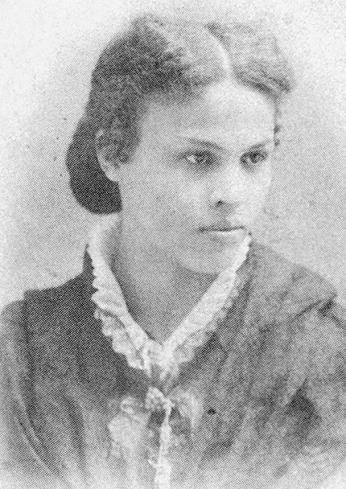
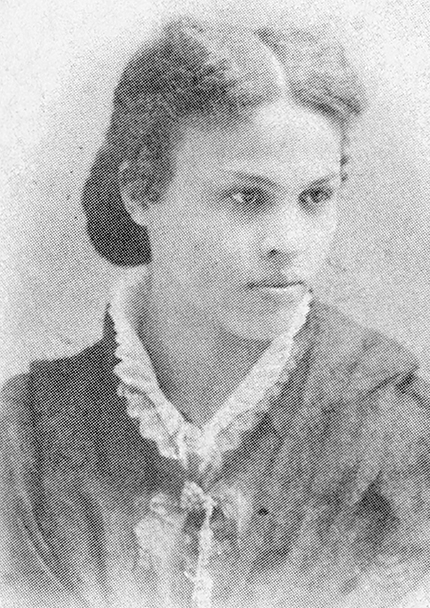
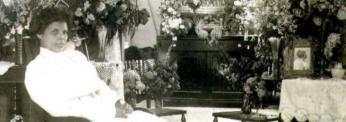
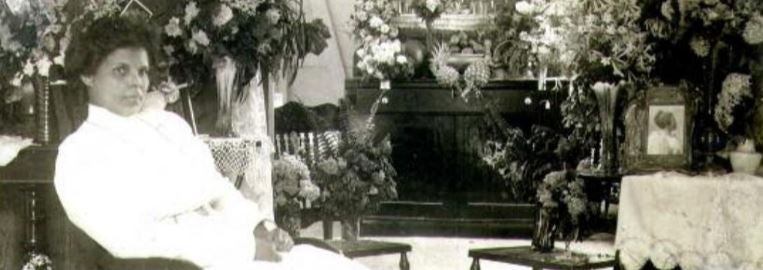
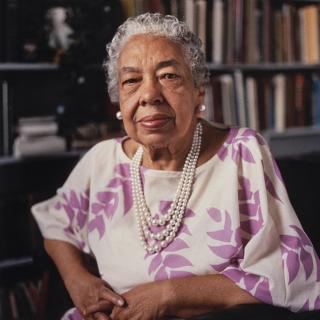
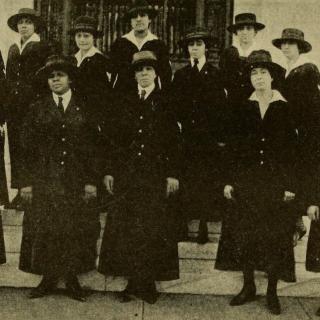
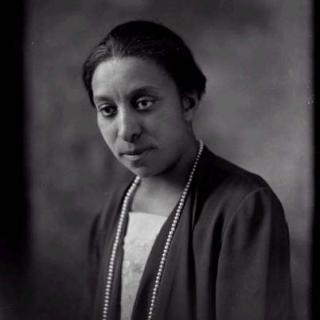
![Sketch of the mythical fuan by Pearson Scott Foresman. [Source: Wikipedia]](/sites/default/files/styles/crop_320x320/public/2023-10/Goatman_Wikipedia_Faun_2_%28PSF%29.png?h=64a074ff&itok=C9Qh-PE1)







